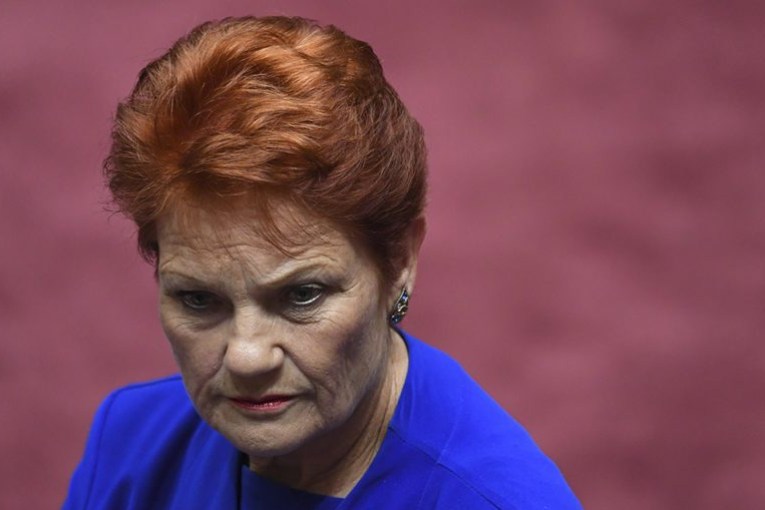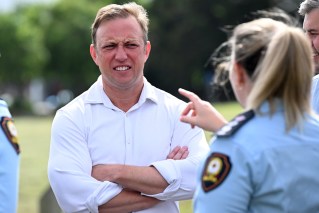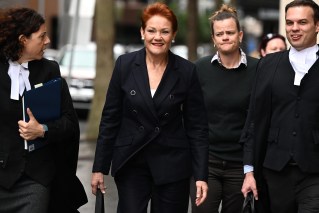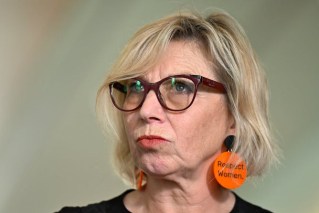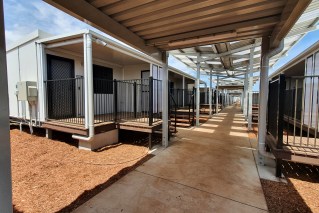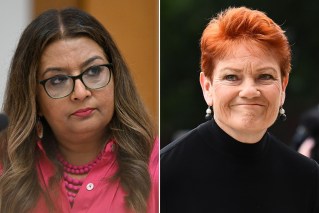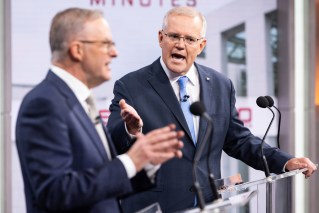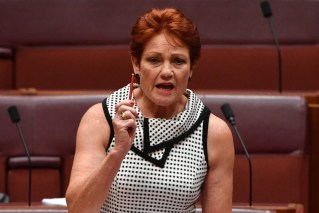Rolling up our sleeves and ignoring the greenwashing – but are leaps and bounds enough?
Queensland has just sworn in the most environmentally-aware Premier in its history at the same time the world is finally taking the issue seriously. But can Steven Miles cut through the hyperbole, asks Dennis Atkins

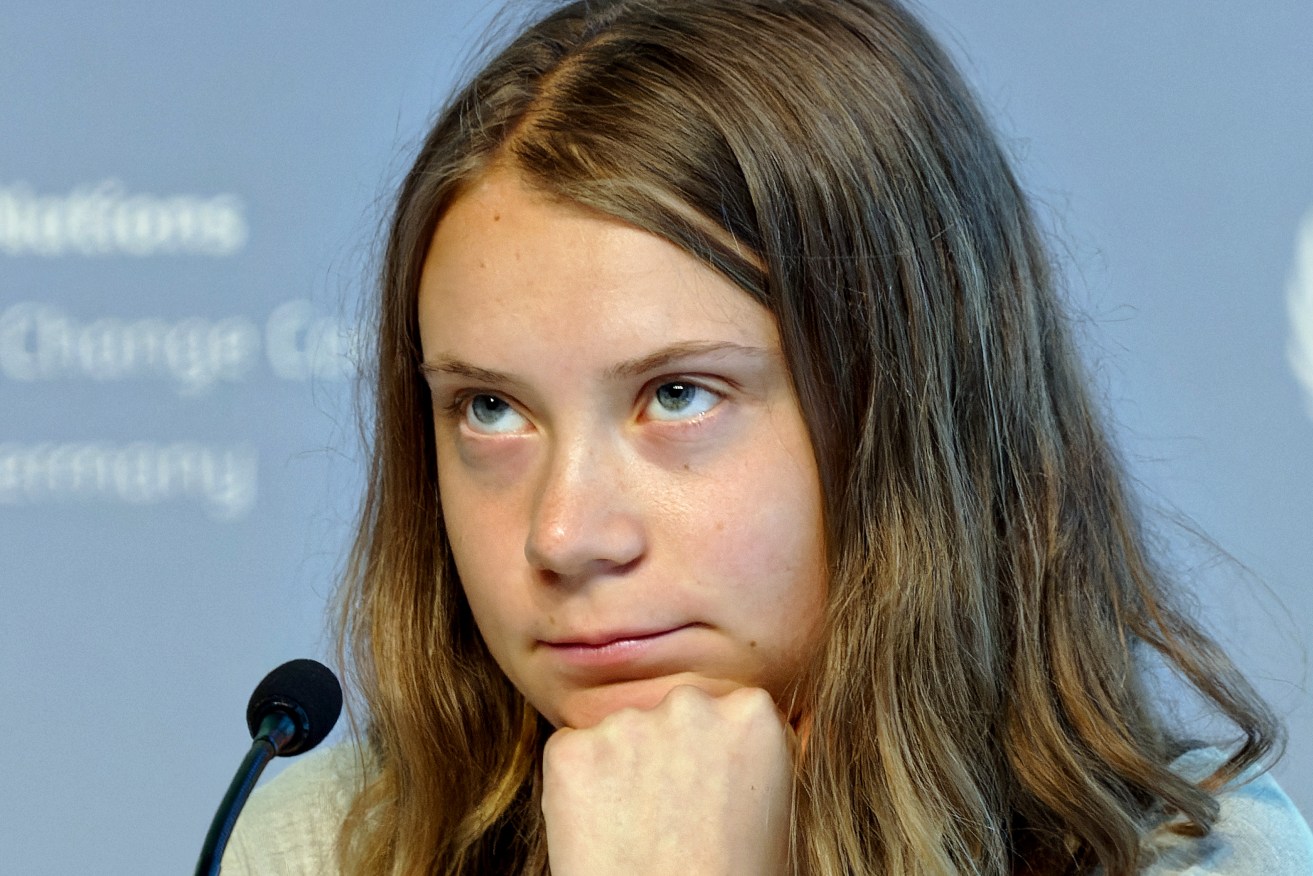
Swedish climate activist Greta Thunberg speaks at a press conference during the UN Climate Change Conference. Photo: Henning Kaiser/dpa
Maybe Greta Thunberg said all that’s left to say about climate policy in her famous youth4climate conference address in Milan in 2021.
Quoting politicians ironically, Thunberg began, “climate change is not only a threat, it is above all an opportunity to create a healthier, greener and cleaner planet which will benefit all of us.”
She continued: “We must seize this opportunity – we can achieve a win-win in both ecological conservation and high quality development. Fighting climate change calls for innovation, cooperation and willpower to make the changes that the world needs. We need to walk the talk – if we do this together, we can do this.
“When I say ‘climate change’, what do you think of? I think of jobs – green jobs – green jobs.
“We must find a smooth transition towards a low-carbon economy.
“There is no planet B”.
It was as if Thunberg asked the Microsoft AI powered Bing co-pilot to create a speech outlining the possibilities arising from combatting climate change. Or she might have stolen the text from a media interview with Australia’s climate change minister Chris Bowen.
It’s a tough contest between an AI Chatbot and Bowen to achieve new heights for boring.
In her speech, Thunberg flicked her switch to politics, underscoring the empty rhetorical nonsense she was spouting.
Here’s her to-the-jaw counter-punch:
“There is no planet blah, blah blah blah, blah blah blah.
“This is not about some expensive politically-correct green-assed bunny-hugging or … blah blah blah.
“Build back better” blah blah blah.
“Green economy” blah blah blah.
“Net zero by 2050” blah blah blah.
“Net zero” blah blah blah.
“Climate neutral” blah blah blah.
An aside at this month’s Conference of the Parties held in Dubai – capital of the Dubai Emirati and the most populous city in the oil and gas kingdom of the United Arab Emirates – updated the cynicism of Thunberg’s 2021 speech.
That the global meeting was held just kilometres from the world’s biggest gas company run by the Abu Dhabi National Energy Company, known as Taqa, costing $.15 billion to build and producing 2.4 gigawatts of power, added to he perception of greenwashing.
After a senior member of the Pakistani delegation remarked this past year had been the hottest on record, his son brought the crowd back to reality by adding that this might be the case, but it was also the coolest we would experience for decades to come.
Yes, the COP-28 in Dubai was seen as either a success or better than any other achievable outcome. With the fear the whole exercise could be one of green washing, this meeting did have some rhetorical power driving it: there was a text calling for a transition away from fossil fuels “in energy systems, in a just, orderly and equitable manner”.
Just words maybe but in the long history of these COPs to get to these words was a real stride for climate change politics.
They were backed by a trio of real acts that can slow down the warming of the planet – even if holding the heat rise to 1.5 degrees is a distant dream lost in the paperwork from the 2015 Paris conference.
As noted by The Financial Times and other serious observers, the key points were a pledge by big oil and gas to clean themselves up, a tripling of renewable generation worldwide, and an ambitious doubling of the rate of energy efficiency globally over the coming seven years.
These are serious goals and could be signposts to great achievement.
Saudi Aramco, ExxonMobil and BP – topping the world’s biggest 50 fossil fuel producers – have put their names (with many others) to an in-principle commitment to decarbonise by voluntarily stopping routine flaring of excess gas and halting all leaks of methane.
These goals have a 2030 time-line – they exceed any agreement in the 28 year history the annual meetings.
Next is a tripling of the global renewable energy generation to at least 11,000 gigawatts by the end of the decade.
This is again ambitious. In plain terms, renewable energy production would need to soar from 3,600 gigawatts (GW) as of late 2022 to 11,000 GW in 2030.
Sounds like a lot of balah blah blah, doesn’t it? On the most basic level it is. After all, if a regular strong lightbulb is 100 watts and a gigawatt is a billion light bulbs, then 11,000 gigawatts is taking the equivalent of 11 thousand billion lightbulbs of power out of the old power side of the economy and putting it over in the renewable column.
Turn that on and win the neighbourhood Christmas lights, hands down!
The last big roll of the climate dice is to double the average annual rate of energy efficiency improvements globally.
This collective action would see the amount of energy saved – around the world at every geographic and sectoral level – climb from a current goal of around 2 per cent to more than 4 per cent, something that’s supposed to be achieved every year for the rest of the decade.
Yes, more ambitious settings but given force because all countries signed up.
The big six measures seen as keys to unlock such savings are standards for domestic, commercial and industrial lighting, energy efficient building codes, vehicle fuel standards, electric motor regulations, heavy industry regulations and tougher air conditioner standards.
These are important steps but are still far short of the leaps and bounds that were needed two years ago in Glasgow when so much time was wasted – a failure compounded in Egypt last year.
Maybe this year there has been some genuine catch up, at just the time Queensland has installed the most personally driven environmental aware premier the state has had.
Steven Miles was in Dubai, a trip he chose to make despite the political potential unfolding here in Brisbane.
He is one of the new generation of political leaders who have to make sure today’s words are more than just the latest iteration of blah, blah, blah.
His to do list couldn’t be bigger or more consequential.
